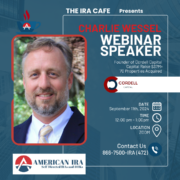Why Independent Contractors Should Consider a Self-Directed Solo 401k
Independent contractors should take note of the Self-Directed Solo 401k. The 401k is America’s most widely-adopted retirement plan – largely replacing the ever more elusive traditional pension plan as one of the three legs of the American retirement ‘barstool,’ the other two being private savings (including conventional and self-directed IRAs and Roth IRAs) and Social Security. Employers are attracted to the 401k’s high contribution limits and flexibility, as well as its very manageable costs compared to traditional defined benefit pensions, while employees favor the pretax contributions and any employer contributions they may receive.
But the Self-Directed Solo 401k version is rapidly gaining traction as well. This variant of the 401k plan is specifically designed to give independent contractors, freelancers, artists, consultants and very small business owners an incentive and a path toward increased retirement savings and future financial security. If you are a sole proprietor, or an owner-operator of a business with no full-time employees other than yourself and a spouse, the Self-Directed Solo 401k has some tremendous advantages:
Self-Directed Solo 401ks support self-directed investing. With traditional employer-sponsored 401ks, you are limited to those mutual funds, annuities or guaranteed investment contracts (GICs) that your employer chooses for you. But your employer may be focused more on protecting themselves from liability than on choosing the very best funds available for you – and what gives them the expertise to do so? If you are your own plan sponsor, in contrast, you can invest independently of the Wall Street investment firms that market their investment products to employers. You can pick out your own investments, from individual rental real estate properties to oil & gas opportunities to limited partnerships, LLCs, private equity, venture capital, gold and precious metals and just about anything else you can imagine! The only exceptions are life insurance, collectibles, certain forms of precious metals of questionable or inconsistent purity, jewelry and gemstones and alcoholic beverages.
High contribution limits. Participants under age 50 can contribute up to $18,000 in salary deferral to the Self-Directed Solo 401k. But the business can make additional contributions of 20 percent of compensation (for single-member LLCs and sole proprietorships) or 25 percent (for all other businesses) up to a combined maximum of $54,000. That’s nearly ten times higher than the $5,500 limit imposed on IRAs for individuals under age 50. And unlike IRAs, 401ks don’t have an income test for eligibility to make pre-tax contributions.
If you’re over age 50, you can make additional contributions to your solo 401k of an additional $6,000 per year.
Asset Protection. Assets held 401k plans enjoy near-complete protection from creditors in every state. Even the IRS has trouble cracking open a 401k account, since 401k assets aren’t held in the owner’s name directly, but instead are held in trust for the owner’s benefit.





